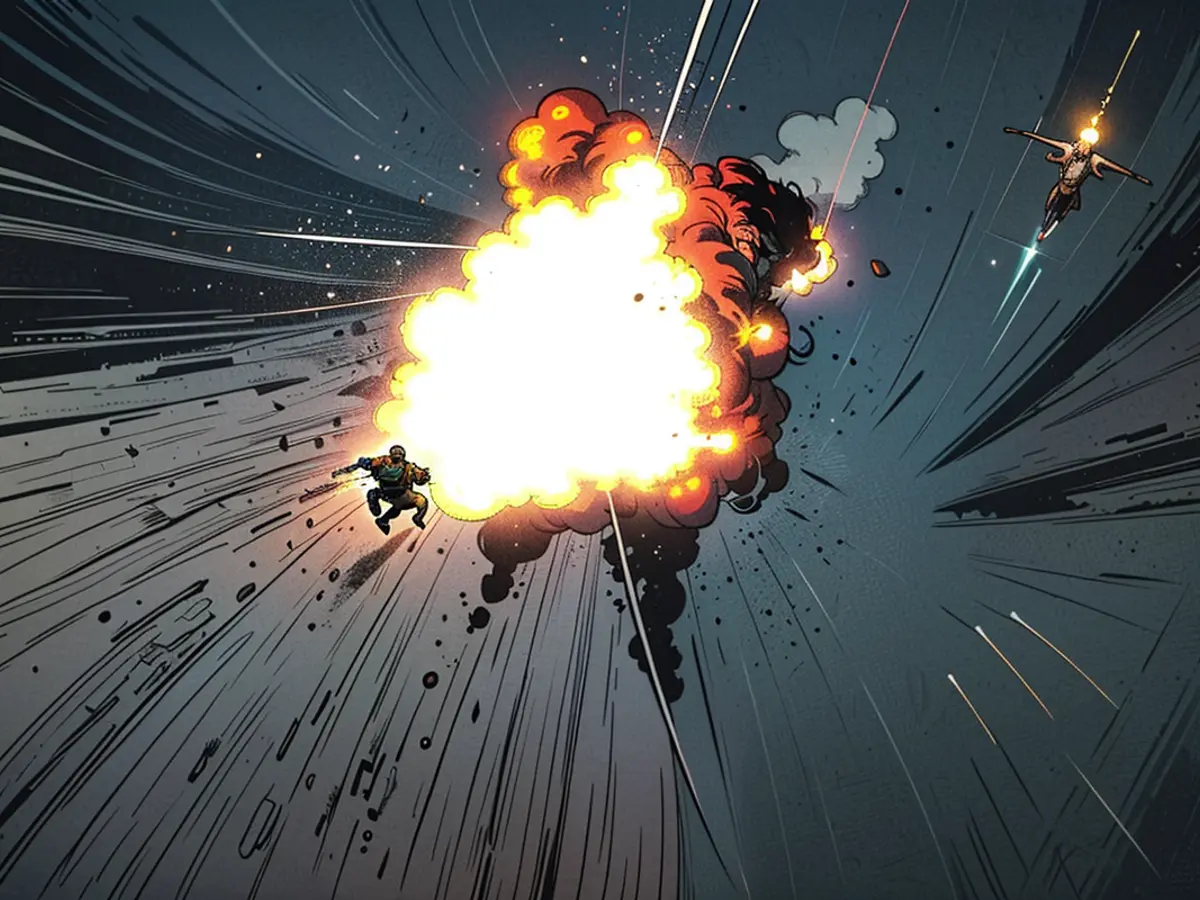Tension in the Middle East appears to have deescalated temporarily, averting a potential regional conflict at the moment.
Iran-supported group touted retaliation. This announcement led to numerous flight cancellations on both sides of the border, various governments urging their citizens to leave Lebanon and Israel, and a frenzied diplomatic push to prevent an intensification that concerned Western nations as they feared it could ignite a wider regional conflict.
On Sunday morning, Hezbollah asserted it had carried out its anticipated action by deploying numerous drones and Katyusha rockets, Soviet-era short-range missiles.
This barrage of aerial weaponry, it claimed, aimed to overwhelm Israel's renowned air defense system and create a path for its targets: 11 Israeli military sites in northern Israel and the occupied Golan Heights. However, Israel's Prime Minister, Benjamin Netanyahu, declared that all Hezbollah's drones had been intercepted.
Israeli officials claimed they had pre-emptively struck Hezbollah targets during the night to forestall a larger attack, and reportedly hit many rocket launchers in Lebanon.
Sadly, three lives were lost in those Israeli attacks, according to Lebanon's Ministry of Health, which fails to distinguish between civilians and military personnel.
The cross-border fire on Sunday morning represented a notable escalation following 11 months of hostilities between Hezbollah and Israel. However, it seemed to lessen concerns of a bigger war, at least for the time being.
In Israel, authorities soon relaxed security measures in the northernmost part of the country, known as the Upper Galilee. In Lebanon, Hezbollah claimed it had ceased its attacks against Israel for the day.
This suggests the resumption of the low-intensity conflict along the border. Additionally, it appears to indicate the conclusion of the anticipated Lebanese escalation that brought the Middle East once more to the brink of full-scale war. Hezbollah has said this was the "first phase" of its response but has provided few specifics about a subsequent phase. This statement could simply be rhetorical, as Hezbollah is known for maintaining its threats open-ended.
However, Israel must still prepare for another potential threat: Iran's vowed "vengeance" for the assassination of Hamas leader Ismail Haniyeh in Tehran, which it blames on Israel.
A region teetering on the edge
Following the attacks in Beirut and Tehran at the end of the previous month, Western and Israeli intelligence officials, diplomats, and analysts hurriedly attempted to decipher Iran's and its most influential non-state partner's promised retaliations.
This prompted diplomatic shuttle service between the United States, the United Kingdom, and France, urging Hezbollah and Iran to exercise restraint. This may have prompted another round of negotiations over a ceasefire and hostage exchange agreement in Gaza, an effort to thwart another escalation by the Iran-led alliance, which has consistently linked the stopping of its attacks on Israel and its allies to an end to the Israeli offensive in Gaza.
The negotiations to end the conflict continue to progress at a snail's pace, despite intensive diplomatic efforts by the United States. Nevertheless, the latest escalation shows that neither Iran nor its allied non-state combatant groups in the region can tolerate the prospect of a broader war.
Hezbollah had repeatedly threatened to retaliate to any Israeli strike in Beirut with an attack on major urban centers in Israel. Yet, whether deliberately or as a result of Israel's alleged pre-emptive strikes, it failed to meet this threat. Its reported targets remain within the border area that has been the site of hostilities since October, and the short-range Soviet-era rockets it used have been a staple of Hezbollah's attacks on Israeli forces for decades.
The risk of a full-scale conflict appears to be significantly lower following Sunday's exchange of fire. However, Iran's open-ended threat will continue to contribute to the psychological warfare that has largely defined the low-grade conflict between the Tehran-led alliance and Israel, and the region will remain on a knife's edge as long as the conflict in Gaza persists.
In response to the international concern, various world powers urged both Hezbollah and Israel to deescalate the situation in the Middle East, as they saw the potential for a wider regional conflict. The ongoing tensions between Hezbollah and Israel in the Middle East have been a subject of interest for Western and Israeli intelligence agencies, who have been closely monitoring the threats and promises of retaliation from Iran and its allies.







